What is a Food and Exercise Log?
A food and exercise log is a journal or document where you record everything you eat and drink throughout the day, as well as the physical activities you engage in. It's a way to track your daily intake of nutrients, calories, and exercise, providing insight into your habits and helping you make more informed choices.
Keeping a food and workout log can be highly beneficial for several reasons. Firstly, it allows you to see patterns in your eating and exercise habits, helping you identify areas where you can improve. It also serves as a visual reminder of your goals, keeping you motivated and on track.
 Printable Food and Exercise Log Journal
Printable Food and Exercise Log Journal

 Printable Workout Log Sheets
Printable Workout Log Sheets

 Printable Food and Exercise Log Journal
Printable Food and Exercise Log Journal

 Daily Food Diary Template Printable
Daily Food Diary Template Printable

 Printable Exercise Log Workout
Printable Exercise Log Workout

 Printable Daily Food Log Template
Printable Daily Food Log Template

 Daily Nutrition and Workout Tracker Printable
Daily Nutrition and Workout Tracker Printable

 Diet and Exercise Journal Printable
Diet and Exercise Journal Printable

 Daily Food and Fitness Tracker Printable
Daily Food and Fitness Tracker Printable

 Weekly Meal and Workout Journal Printable
Weekly Meal and Workout Journal Printable

 Nutrition and Exercise Planner Printable
Nutrition and Exercise Planner Printable

 Daily Food and Exercise Log Printable
Daily Food and Exercise Log Printable

 Weekly Food and Exercise Log Printable
Weekly Food and Exercise Log Printable

Here are some key pieces of information to include in your food and workout log:
- Food List: Write down the food and drinks you consume per day. Include the type of food, portion sizes, and any condiments or toppings.
- Calorie Count: If you are looking to lose weight or maintain a healthy weight, tracking your calorie intake is crucial. Use a food tracking app or website to help you calculate the calories in each item.
- Nutritional Information: Pay attention to the nutritional content of the foods you are eating. Include information such as protein, carbohydrates, fats, vitamins, and minerals.
- Time of Consumption: Note the time of day that you are eating.
- Hunger Levels: Rate your hunger levels before and after each meal or snack. This can help you identify whether you are eating out of hunger or for other reasons.
- Type of Exercise: Record the type of exercise you are doing, whether it's cardio, strength training, yoga, or a group fitness class.
- Duration: Note how long you are exercising for. Include both the total workout time and any breaks you take during your session.
- Intensity: Keep track of how hard you are working during your workouts. This can be measured using your heart rate, perceived exertion, or specific metrics for different types of exercise.
- Calories Burned: Use a fitness tracker or online calculator to estimate the number of calories you are burning during each workout.
- Notes: Write down any additional information about your exercise routine, such as how you felt during the workout, any challenges you faced, or any modifications you made.
What’s the Best Way to Record Nutrient Intake in a Food and Exercise Log?
Let’s explore some effective methods for recording your nutrient intake in a food and workout log.
- Keeping a Detailed Food Journal: One of the best ways to record nutrient intake is by keeping a detailed food journal. This involves writing down everything you eat and drink throughout the day, including portion sizes and any added condiments or sauces. By keeping a food journal, you can easily track your calorie intake, as well as your consumption of key nutrients such as protein, carbohydrates, and fats.
- Including Exercise in Your Log: In addition to tracking your food intake, it is important to also record exercise habits in your food and workout log. This can help you see the relationship between your nutrient intake and physical activity levels, and can provide valuable insights into how your lifestyle choices are impacting your health and fitness goals.
- Using a Combination of Methods: For many people, the best way to record their nutrient intake is by using a combination of methods. This could involve keeping a food journal for certain meals or snacks, while using a food tracking app for others. By finding a system that works best for you, you can ensure that you are accurately recording your nutrient intake and staying on track with your health and fitness goals.
How Can You Track Hydration in a Food and Exercise Log?
One of the simplest and most effective ways to track your hydration levels in a food and workout log is to record the amount of water you consume throughout the day. You can also include other beverages such as herbal teas, coconut water, and infused water to ensure you are staying adequately hydrated. Make a note of the quantity of each beverage you consume and track it alongside your meals and physical activity.
In addition to tracking your fluid intake, consider incorporating foods with high water content into your diet to support hydration. Fruits and vegetables such as watermelon, cucumber, oranges, and lettuce are excellent choices to boost your hydration levels. Keep a list of hydrating foods in your food log and make an effort to include them in your meals and snacks regularly.
How Can a Food and Exercise Log Support a Balanced Lifestyle?
Food and exercise logs can be a powerful tool for supporting a balanced lifestyle. By tracking your daily habits and behaviors, you can become more aware of your choices, hold yourself accountable, and make positive changes to improve your overall health and wellness. So, why wait? Start keeping a food and workout log today and take the first step towards achieving your fitness goals.
More printable images tagged with:
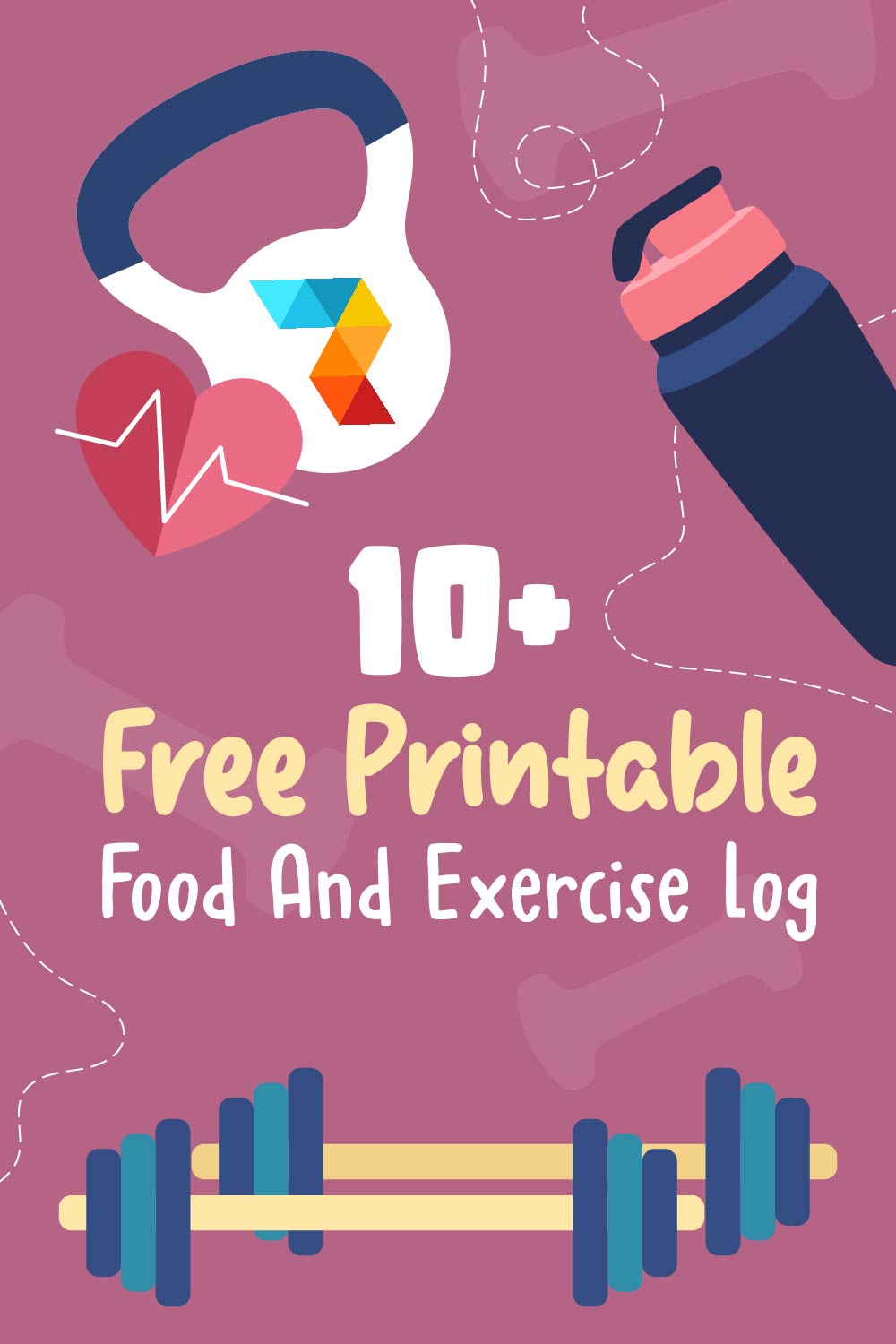
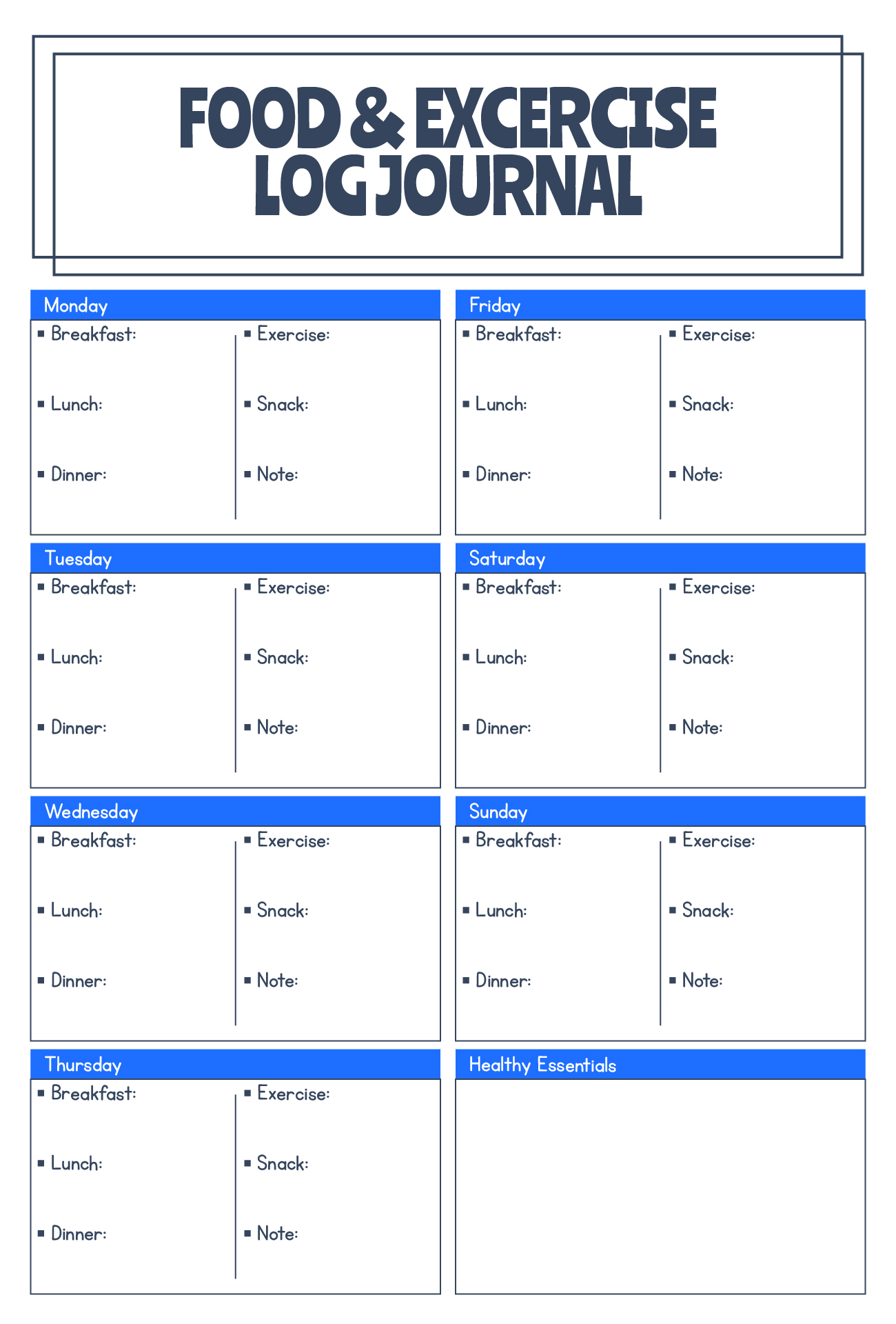
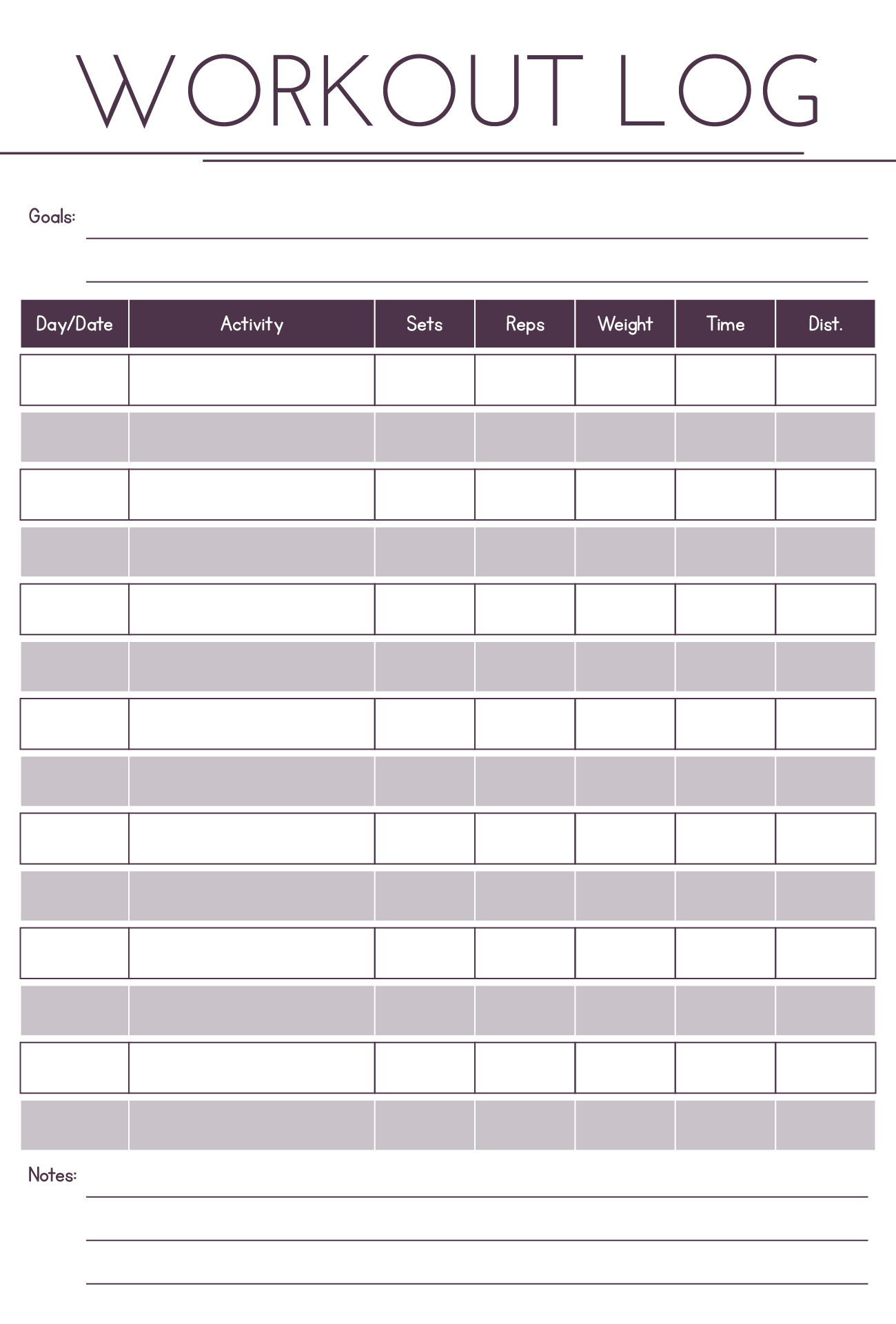
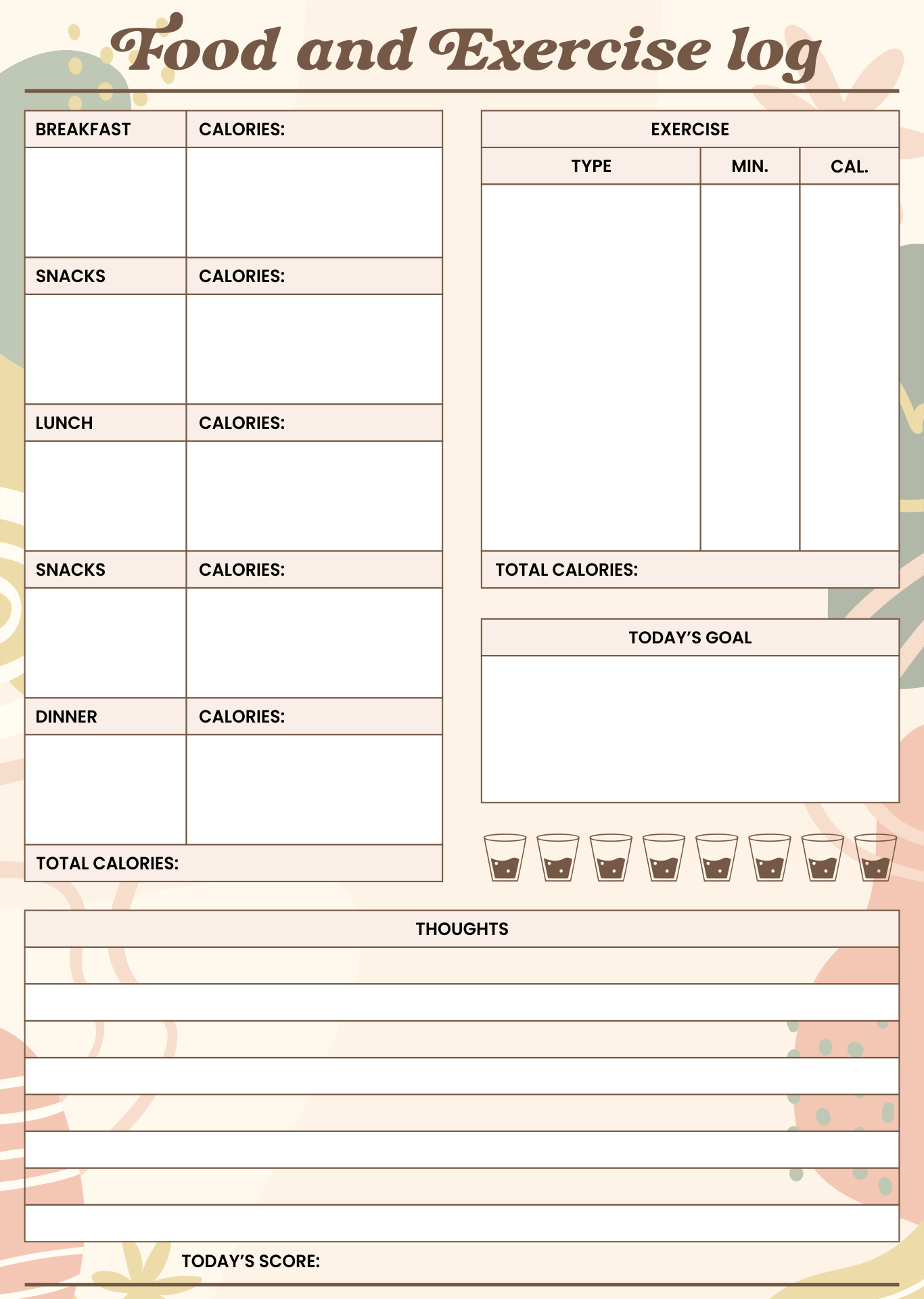
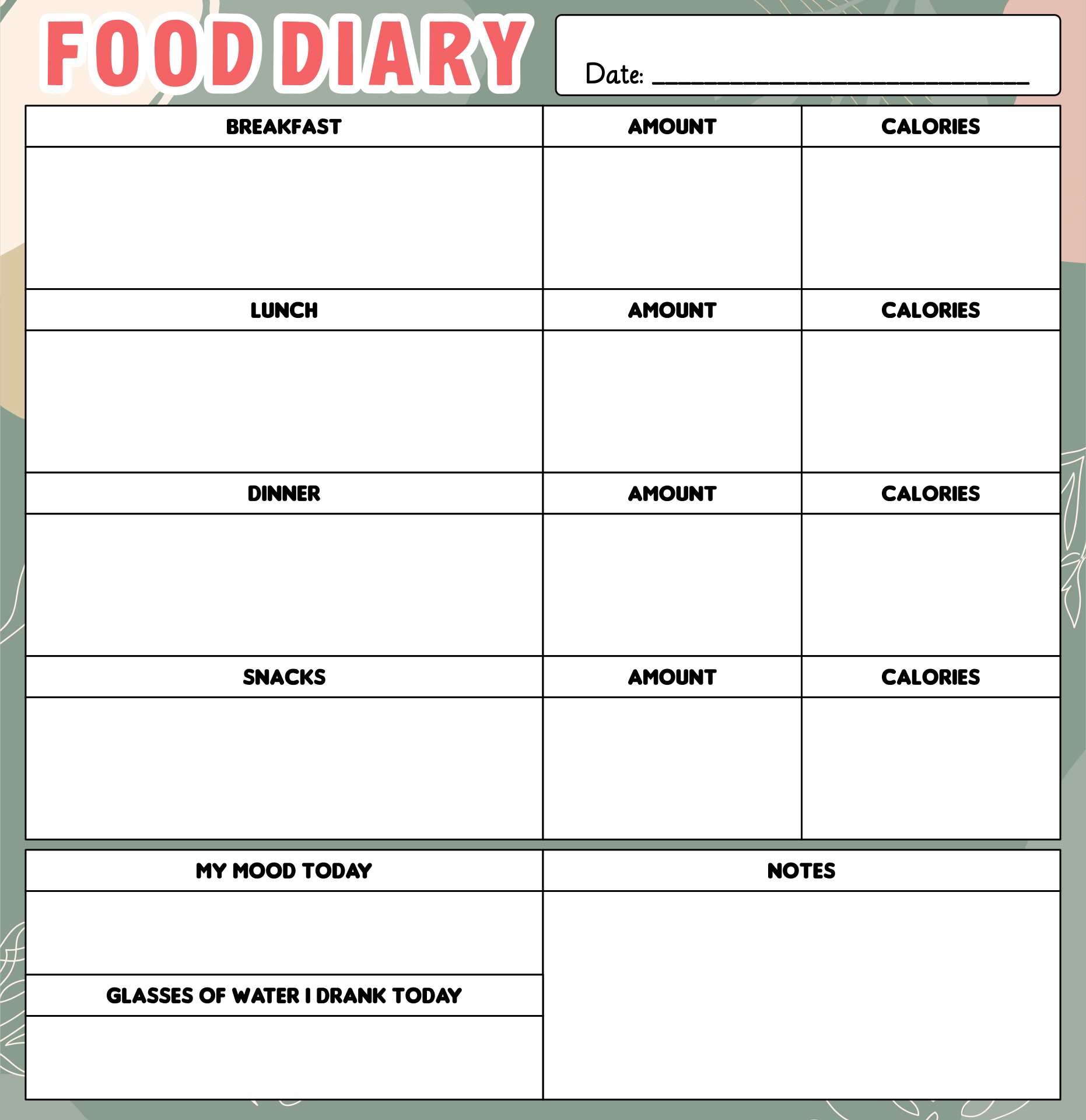
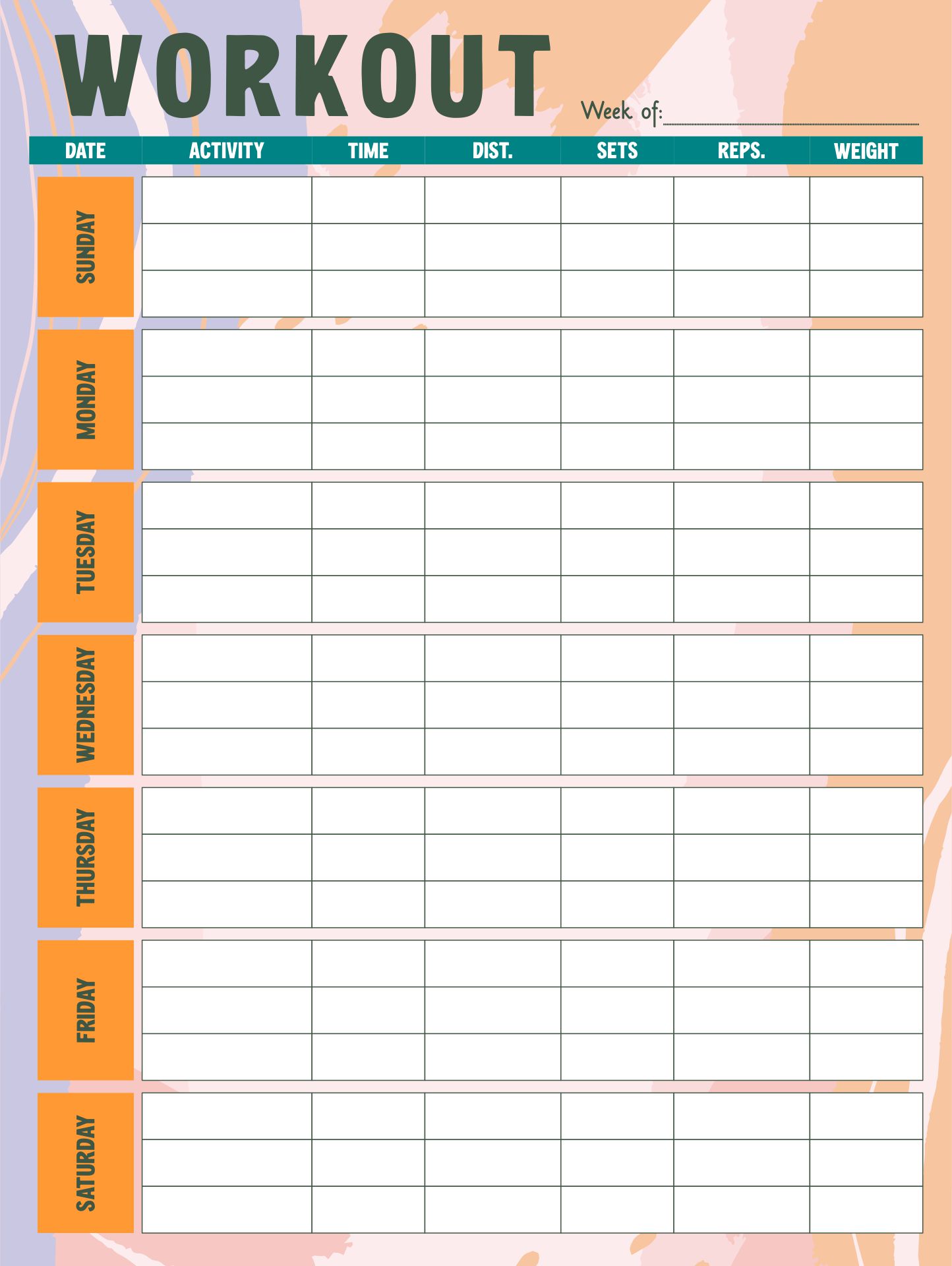
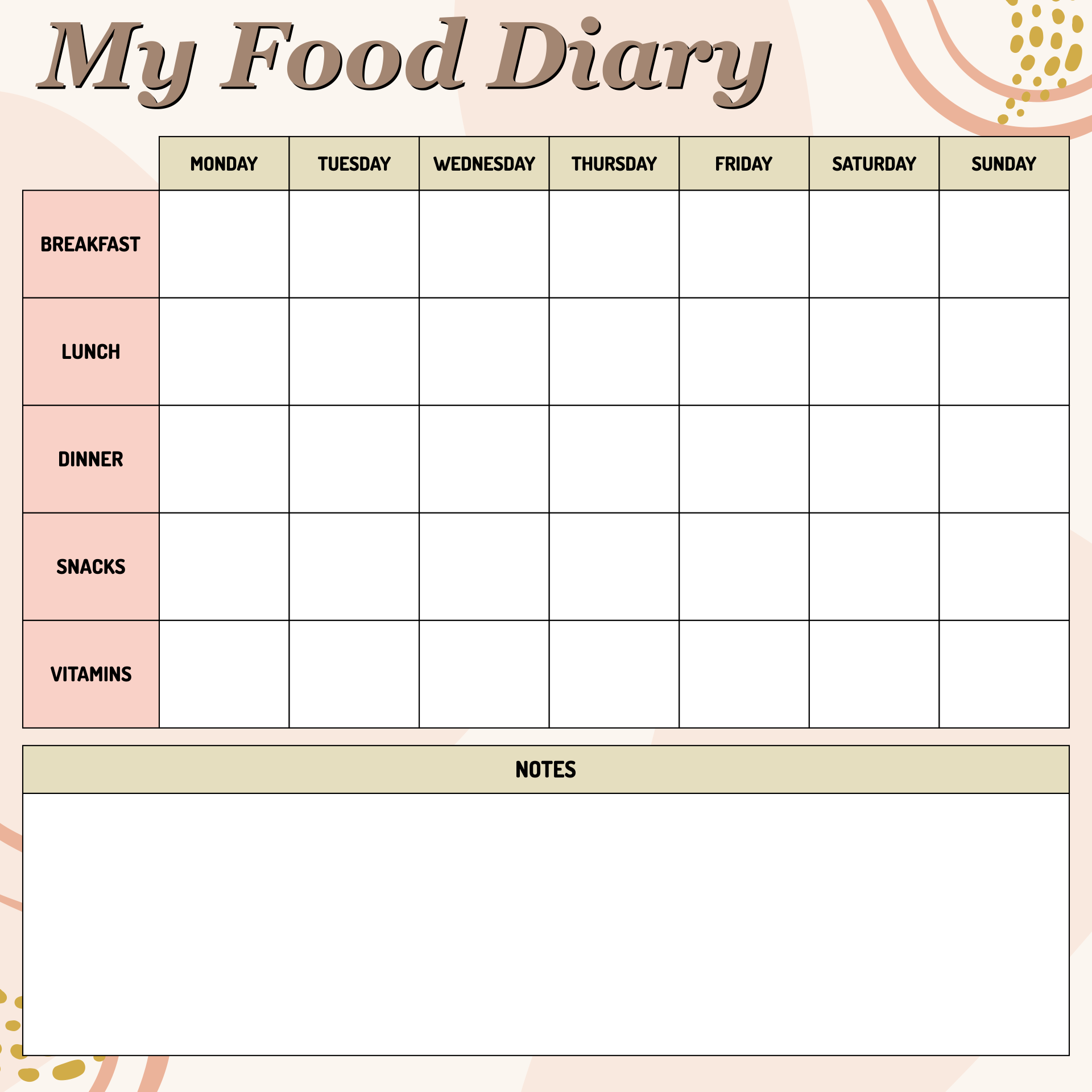
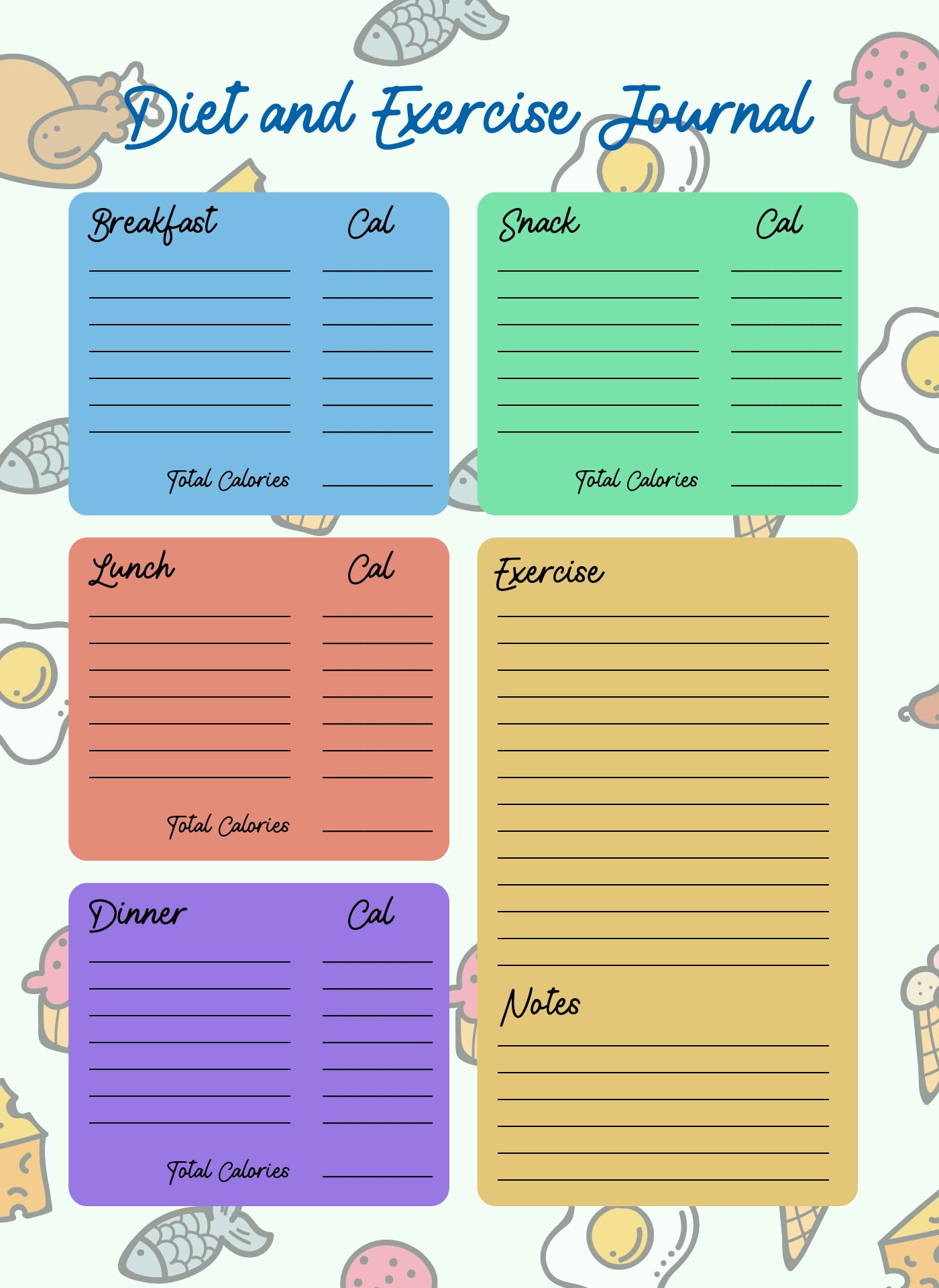
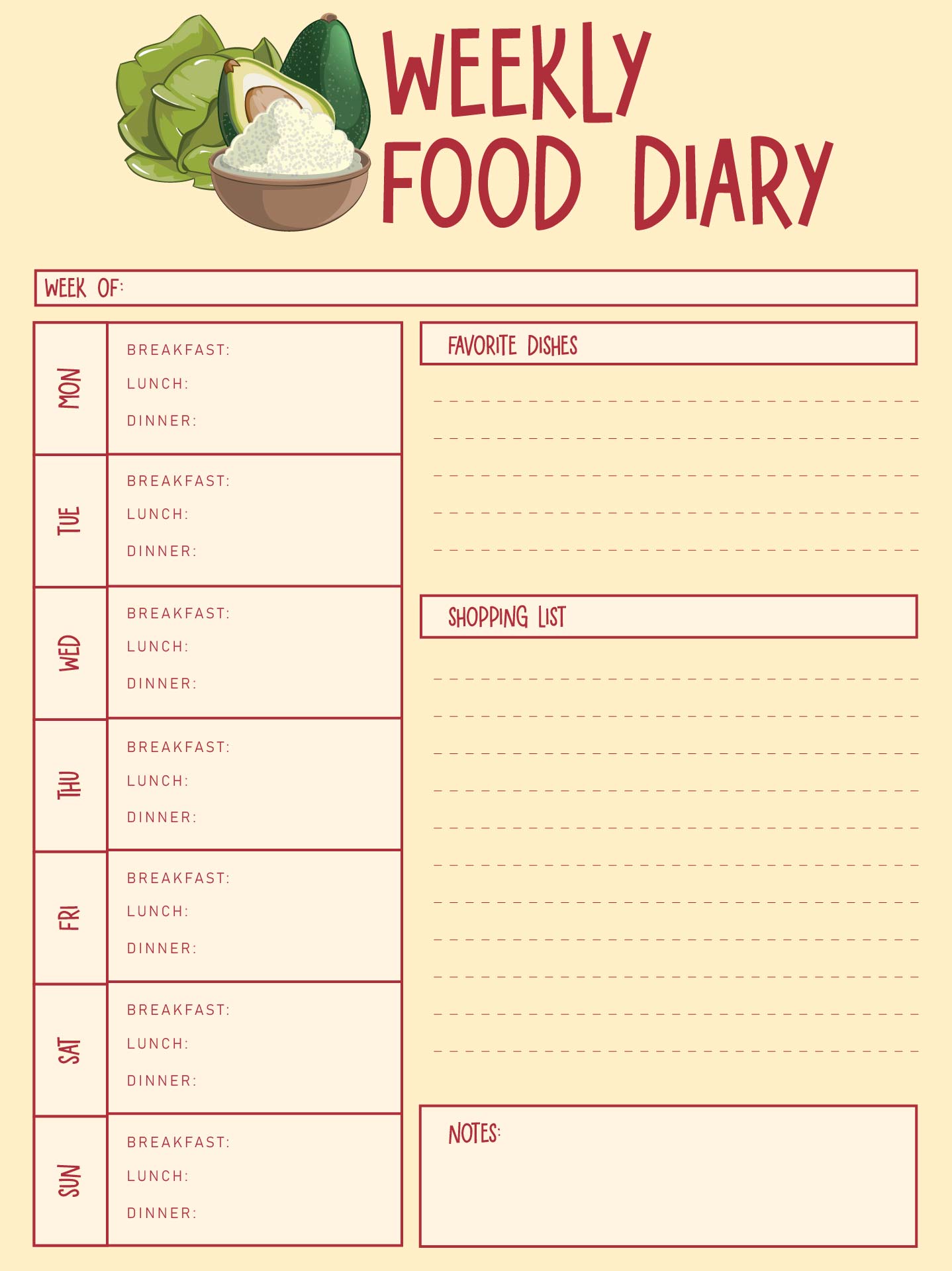
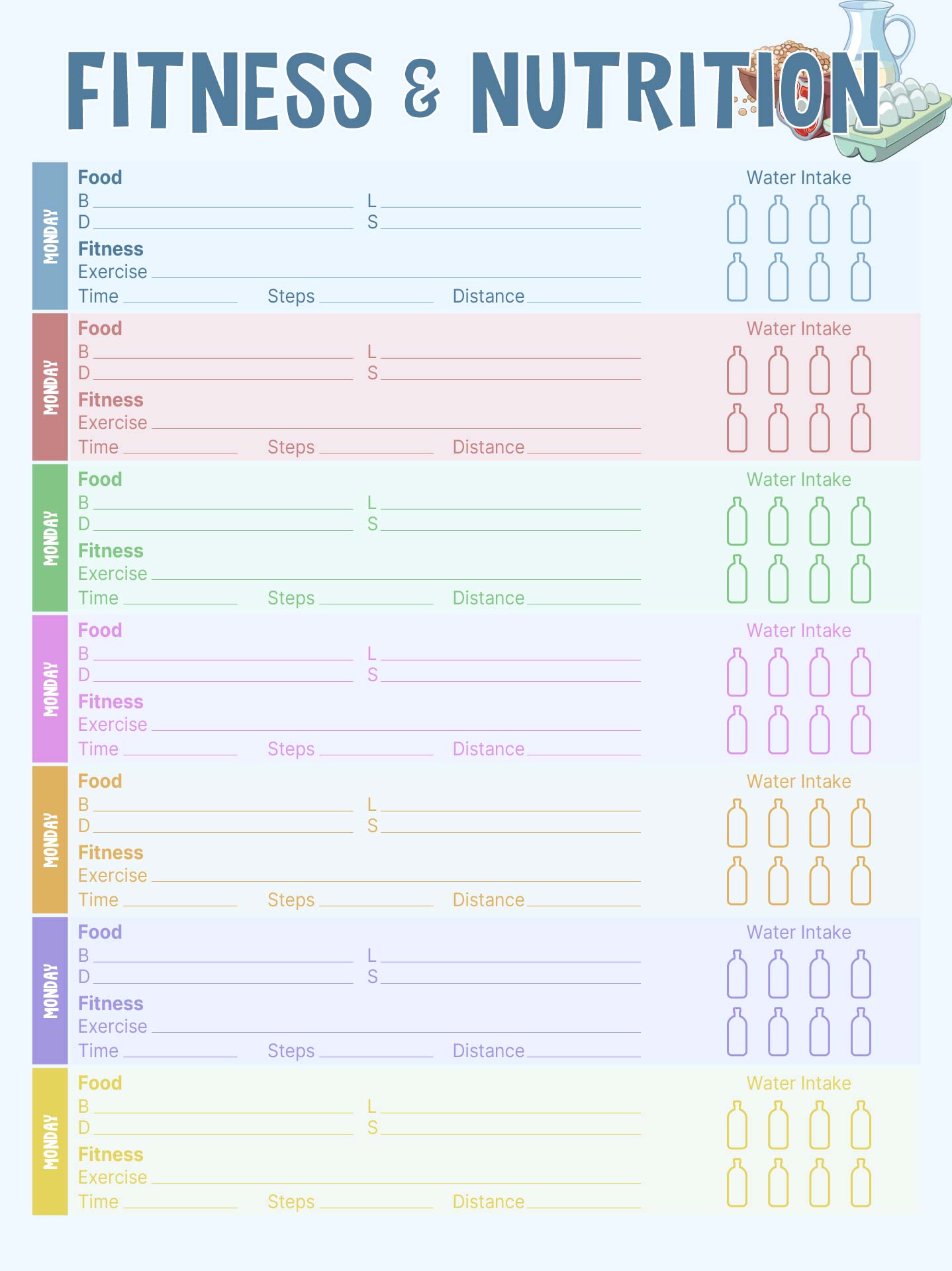
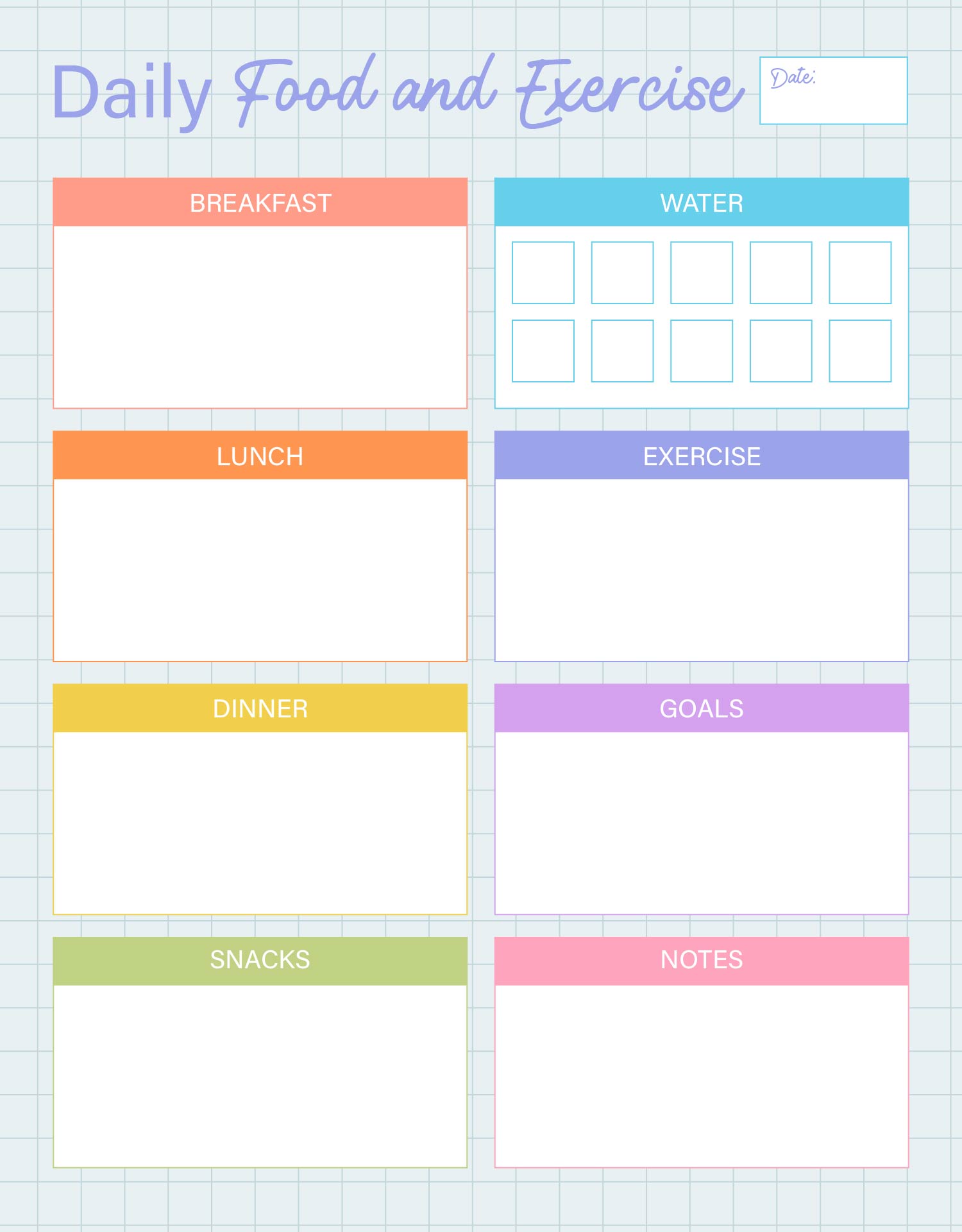
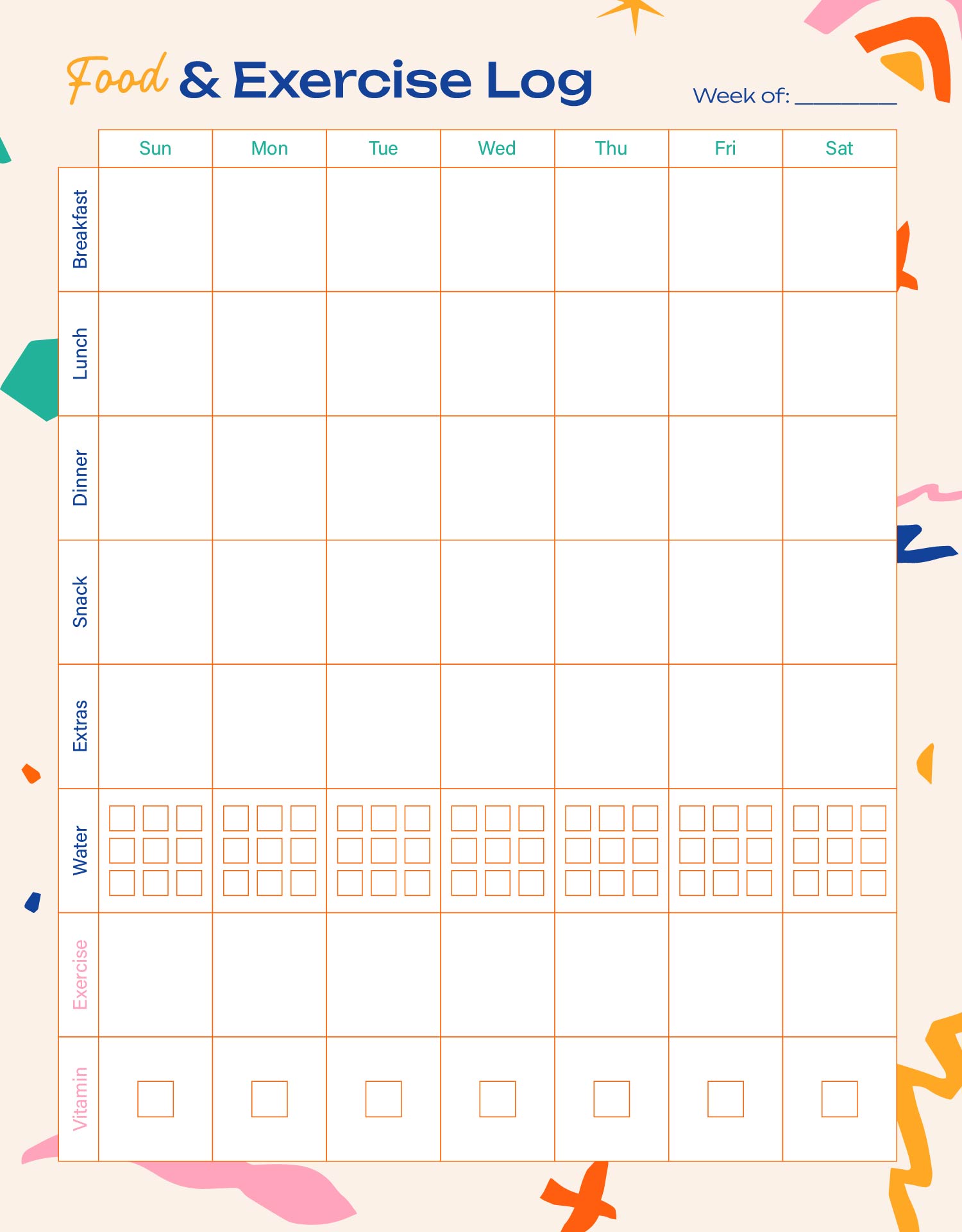
Have something to tell us?
Recent Comments